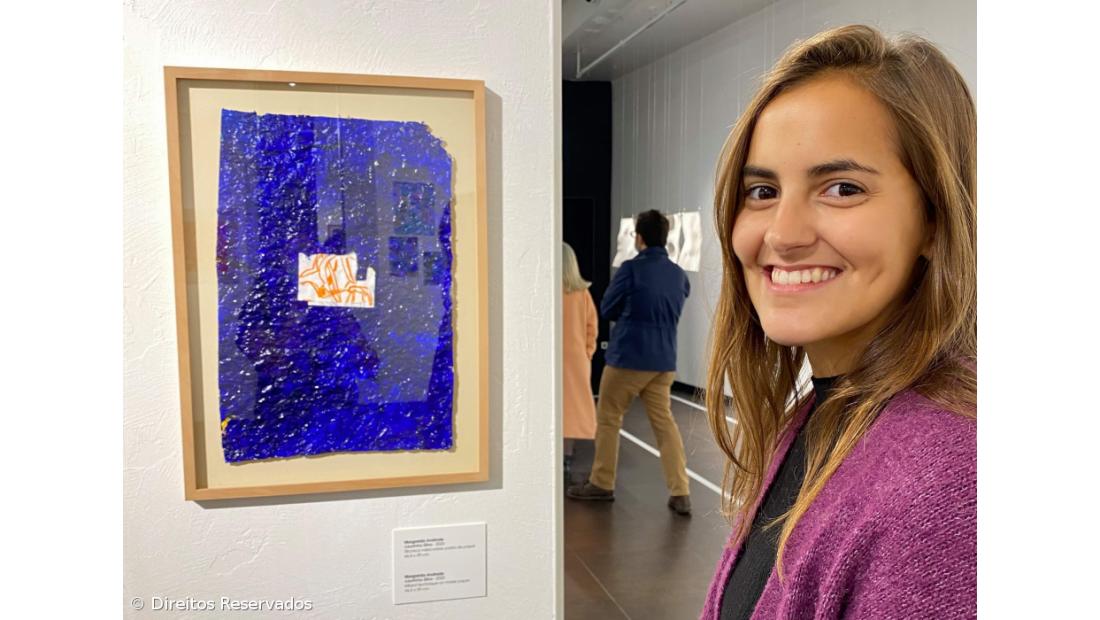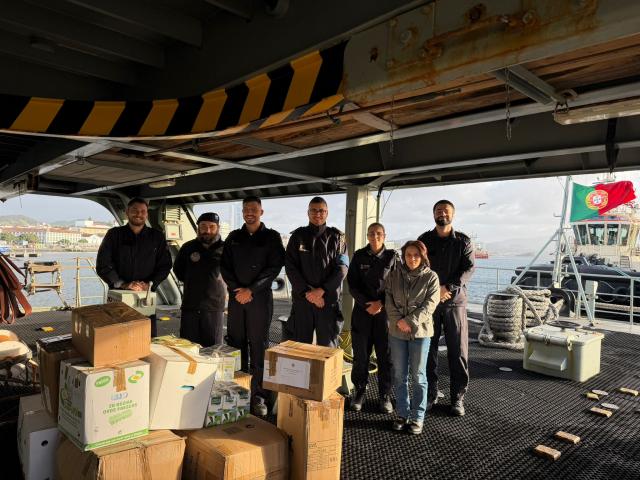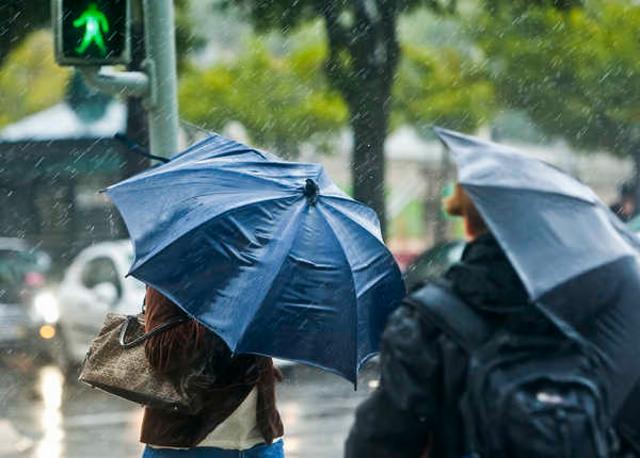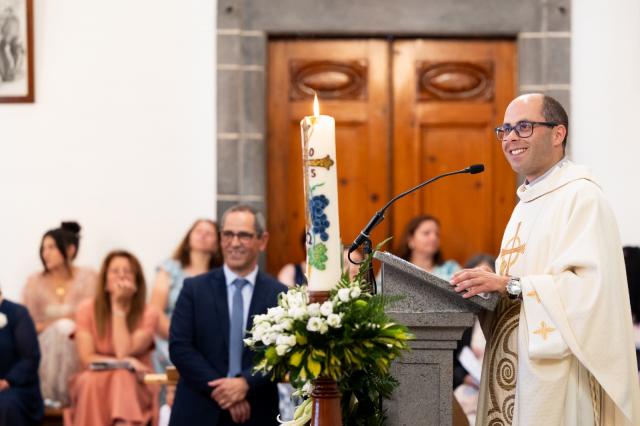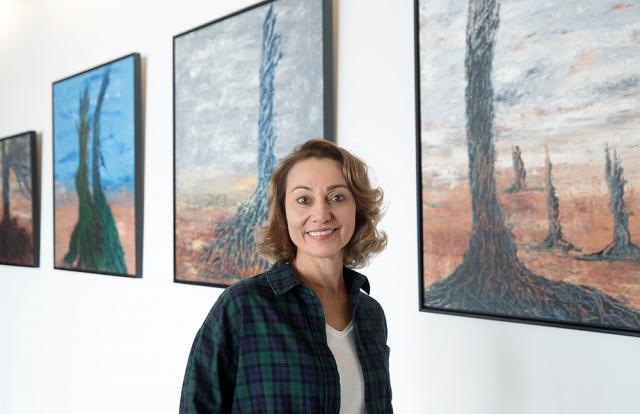The exhibition "In the future they also used brushes" is on display at Arquipélago – Contemporary Arts Center until January 22nd. How was this story built?
The story that gives the motto to the exhibition is, in fact, the story of the book "The Tenth Island", included in the exhibition, and was created in 2020 in the middle of the pandemic.
The book portrays a future reality on a Planet that, despite being ours, is unrecognizable as a consequence of the excessive exploitation of the human species. The story centers on a group of navigators who decide to take a voyage to an unknown island in the hope of finding the great gods of the Planet at the time. Between volcanic eruptions, earthquakes and other adventures, the group is surprised by a set of ceramics whose illustrations make them rethink their way of life. This reflection is something recurrent in my life.
The exhibition, and everything that makes it up, is my way of encouraging other people to make similar reflections, and the story is a light, but ironic and satirical way of inviting interested people to think about their habits and the potential impact they have on our lives and on the planet. The ceramics in the exhibition are the ceramics found by navigators in the future. It is a game between time and space.
The narrative of this exhibition is presented through different mediums – ceramics, literature and drawings. How do they connect?
Literature was, for me, the ideal tool to share the story I had stored in my head. From it, the drawings and paintings emerged. Ceramics, because it is a medium I am less familiar with, came later. In fact, ceramics emerged as a need to physically build the pieces described in the book. With this in mind, it is the book – the story – that makes the connection between the different media in a natural way.
What motivates you to explore these different mediums?
It is curious because I am an artist by training. I studied painting at the Faculty of Fine Arts, so the natural thing to do would be to explore mainly painting, drawing... There is, however, something essential in my practice, I think, which is the political component. I use what, for me, is the easiest and most pleasurable form of communication, the arts, to fulfill my duty as a citizen, contributing to the public debate through the reflection on problems that affect us all.
In the case of this project, because it is based on a story I invented, I had to resort to means such as literature and ceramics. I am not, however, a specialist in either. I read a lot and ceramics have always attracted me, but it was the story of "The Tenth Island" that made me take the risk of exploring it.
Along with this exhibition, the book "The Tenth Island" was launched. In what way is writing also important to you?
The book was the first thing to emerge, giving the motto for all the other elements that make up the artistic project and the exhibition. I have always loved reading. Writing too, although I know I still need to work hard to reach a minimally commendable level. In one way or another, writing is certainly in my genes, were it not for my father, grandfather and great-grandfather being journalists by vocation. Without wanting to, I ended up falling into it too. And with pleasure. However, I suppose I will always lean more toward the visual arts.
Integrated in the parallel program of the exhibition "In the future they also used brushes", there was a workshop with Judite Canha Fernandes entitled "The pieces of the island" and on the 21st a talk entitled "Across Disciplines". How do these activities allow you to explore the work you present to the public?
These activities are essential and the more diversified the better, in order to reach a variety of audiences. In my case, since I am guided by the desire to reflect on more sustainable living habits, I see these activities as another opportunity to encourage more people to do the same. At the same time, I take the opportunity to make contemporary art known, deconstructing the fears, mistrust, or lack of interest that many feel towards it.
Initiatives such as the Workshop on January 13 and 14, created and hosted by Judite Canha Fernandes, make me happy, because they make me believe that my goal of generating parallel debates from my work is being achieved.
With the debate on the 21st, as well as with the Workshops and Reading Clubs that I had the opportunity to promote in the scope of the exhibition, I can bring to discussion the need to conserve our Planet, while trying to deconstruct and explain the elements that compose the artistic project. I try to bring people closer to my work, to venture into the world of contemporary art, which is nothing more than another way to participate in society, to talk and to reflect.

